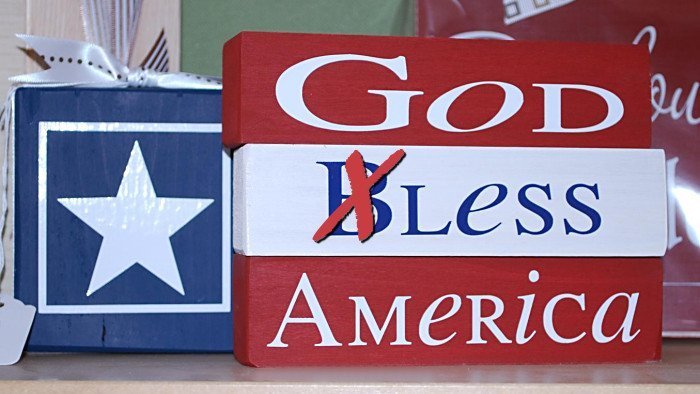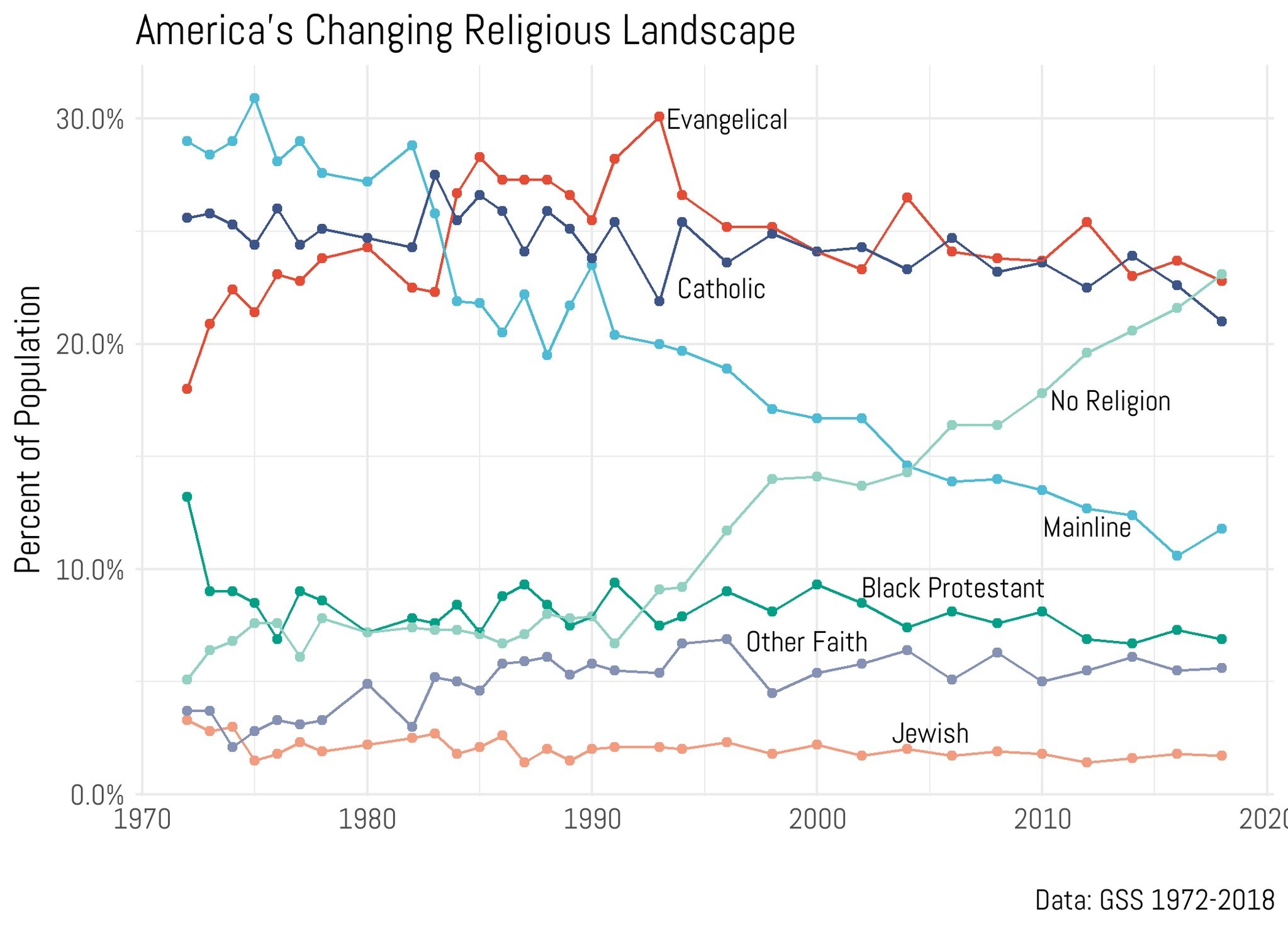For the first time “No Religion” has topped a survey of Americans’ religious identity, according to a new analysis, as the non-religious edged out Catholics and evangelicals in the long-running General Social Survey.
The GSS, a biennial project run by NORC (National Opinion Research Center) at the University of Chicago and one of the longest-running measures of religion in America, shows how the landscape continues to change.
Ryan Burge, a political science researcher at Eastern Illinois University, analyzed data from the survey.
According to his data, 23.1% of those surveyed were people of “no religion.”
Catholics came in at 23.0%, and evangelicals were at 22.5%.
The three groups remain within the margin of error of each other though, making it a statistical tie.
Over 2,000 people were interviewed in person for the survey.
“Religious nones,” as they are called by researchers, are a diverse group made up of atheists, agnostics, the spiritual, and those who are no specific organized religion in particular.
A rejection of organized religion is the common thread they share.
“It is the first time we have seen this. The same questions have been asked for 44 years,” Burge said.
The meteoric rise of religious nones began in the early 1990s and has grown 266% since 1991.
Burge estimates that ‘No Religion’ will be the largest group outright in four to six years.
Experts still debate the factors behind this wave of Americans declaring no religion.
One reason could be the internet, says Nick Fish, the president of American Atheists.
It provides a place for nonbelievers to find each other.
“The ease of access to the internet helped build communities where they didn’t feel alone,” he says.
Robyn Blumner, executive director of the Richard Dawkins Foundation for Reason & Science, sees the change as a generational trend driven by millennials.
“We are seeing the rise of a generation of Americans who are hungry for facts and curious about the world,” she says.
Whatever the causes, the non-religious represent a growing constituency.
Yet this demographic is greatly underrepresented in Washington’s halls of power.
There is not a single open atheist amid the most diverse Congress in history, according to a Pew study.
The Congressional Freethought Caucus’s 10 members try to represent non-theist interests while protecting the secular character of government.
“This growing group of Americans can feel like there is at least some people in Congress who believe they matter.” says the co-chair and founder, Rep. Jared Huffman of California.
Last year, polling from ABC News and The Washington Post found that between 2003 and 2017, the percentage of adult Americans that profess “no religion” grew from 12 percent to 21 percent.
At the same time, the white evangelical portion of the population has shrunk from 21 percent to 13 percent.

